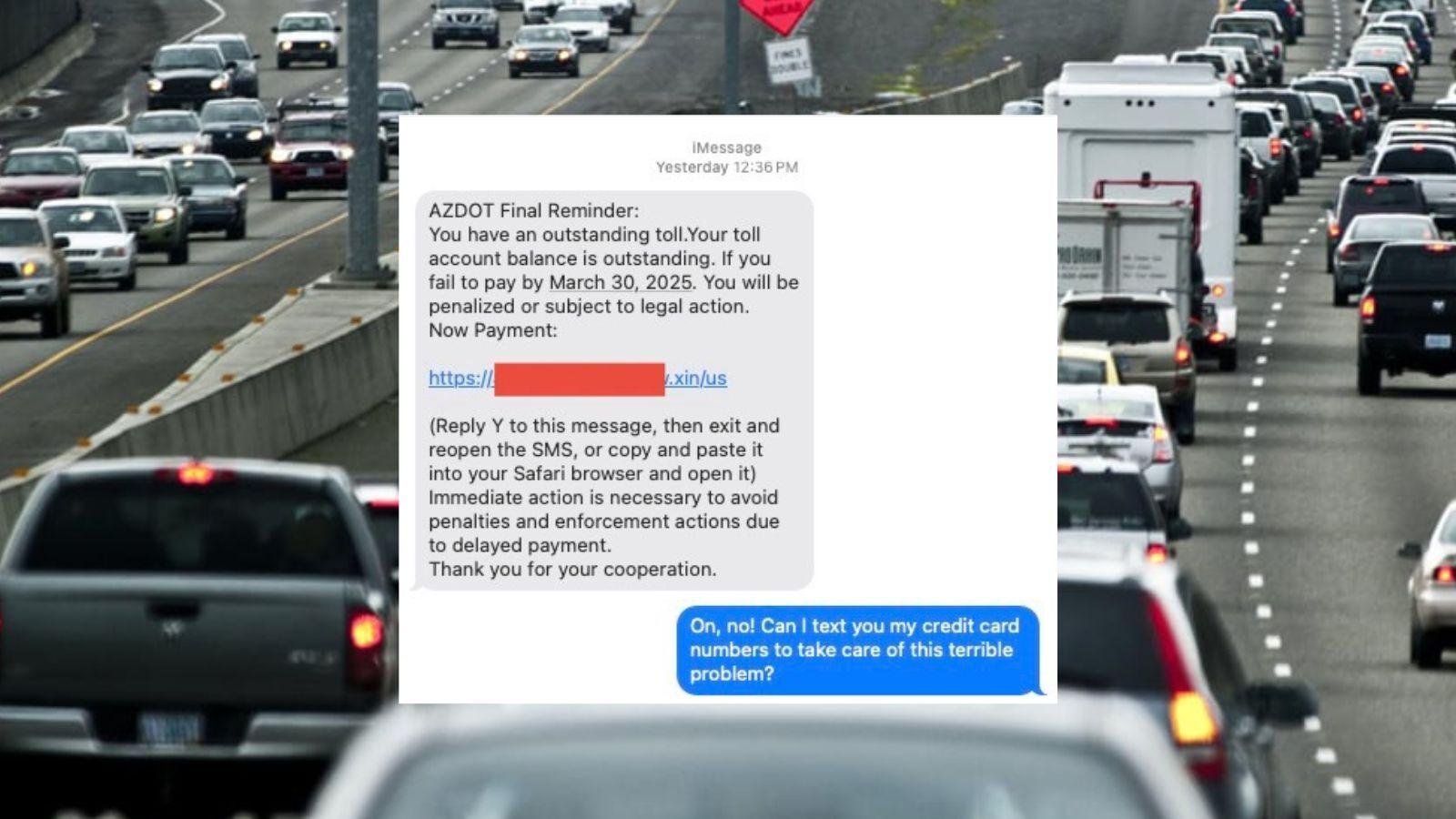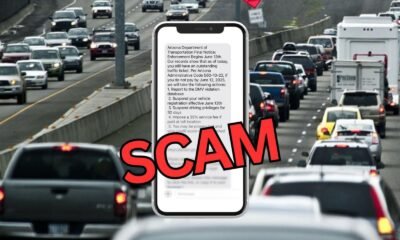Business
Beware: ADOT Toll Texts Are a Scam, Not a Reminder!

This week, the Arizona Department of Transportation (ADOT) alerted residents about a scam masquerading as an official message regarding unpaid tolls. Numerous Arizonans received text messages claiming to be from ADOT, demanding immediate payment for an alleged outstanding toll balance.
The fraudulent message states: “AZDOT Final Reminder. You have an outstanding toll. Your toll account balance is outstanding. If you fail to pay by March 30, 2025, you will be penalized or subject to legal action. Now Payment.” It included a link to a domain registered in China, raising further red flags.
ADOT quickly dispelled the legitimacy of the text, highlighting several telltale signs: Arizona does not have tolls, the messages originated from foreign email addresses, and the state agency is known as ADOT, not AZDOT. Additionally, the phrasing in the message exhibited poor grammar, a characteristic not typical of official communications.
Steve Elliott, an ADOT spokesperson, confirmed that the department will never request money via text. While ADOT may send texts for two-factor authentication related to the online MVD portal, these communications strictly adhere to security protocols.
The FBI has tracked reports of this unpaid-toll scam, which first surfaced in March 2024. Consumers across at least three states complained about similar fraudulent texts. This tactic, termed “smishing,” combines elements of phishing and SMS scams, aiming to trick individuals into revealing personal information or downloading malware.
In February 2025 alone, Americans received an astounding 19.2 billion spam texts—an average of 63 messages per person. If a suspicious message arrives, the FBI advises against clicking any links. Instead, individuals should verify legitimacy by calling the organization directly using the contact information on their official website.
To combat fraud, users can utilize their phone’s “report junk” feature or submit reports to the Federal Trade Commission and the FBI’s Internet Crime Complaint Center. Despite ongoing challenges in eradicating spam, referring to the FTC’s guidelines about managing unwanted communications remains a practical step.
In a humorous note, one user on X responded to ADOT’s alert, jokingly questioning his recent payment of $400. “Then who did I send $400 to today? My wife is gonna be pissed,” he quipped, resonating with many who have encountered similar scams.


![Mayor Nancy Smith speaks to a crowd during a lunch-and-learn event at the Maricopa Community Center. June 19, 2025. [Monica D. Spencer]](https://arizonanews.org/wp-content/uploads/2025/06/Mayor-Hints-at-Positive-Developments-Before-Tomorrows-ADOT-Vote-400x240.jpg)
![Mayor Nancy Smith speaks to a crowd during a lunch-and-learn event at the Maricopa Community Center. June 19, 2025. [Monica D. Spencer]](https://arizonanews.org/wp-content/uploads/2025/06/Mayor-Hints-at-Positive-Developments-Before-Tomorrows-ADOT-Vote-80x80.jpg)














